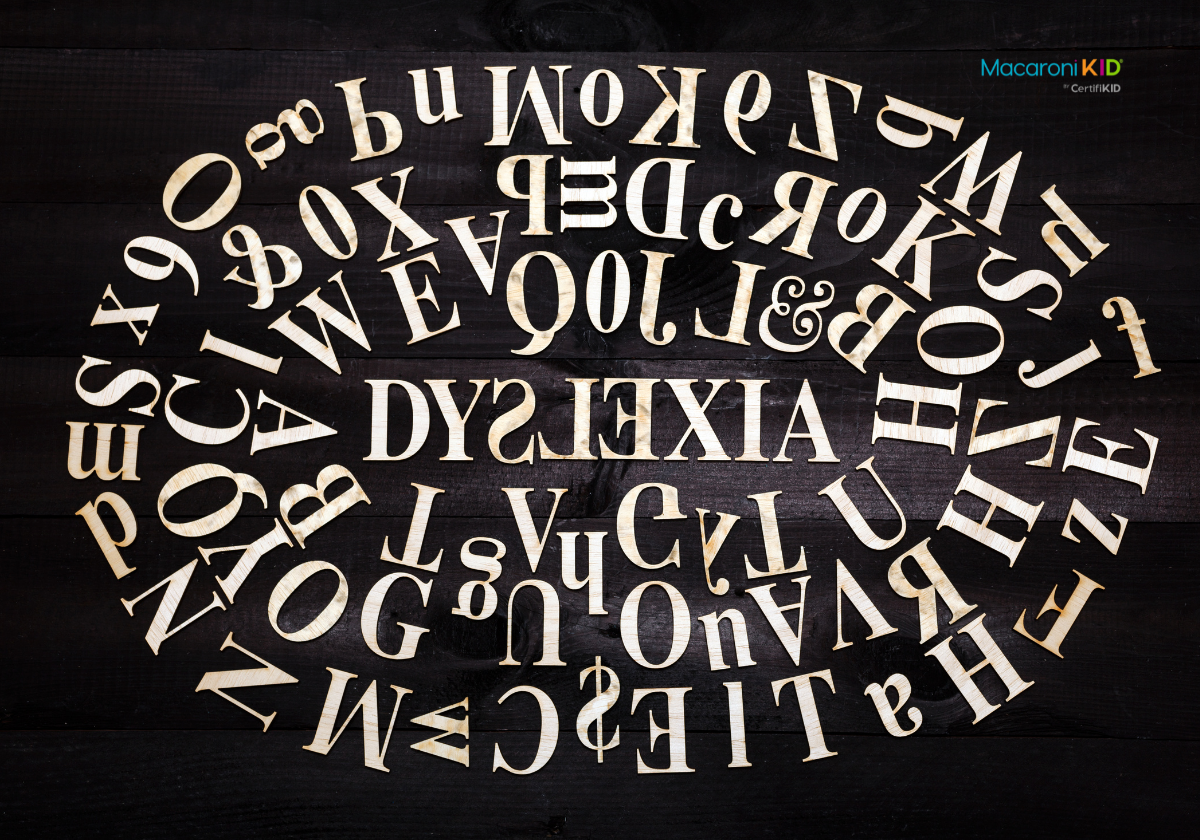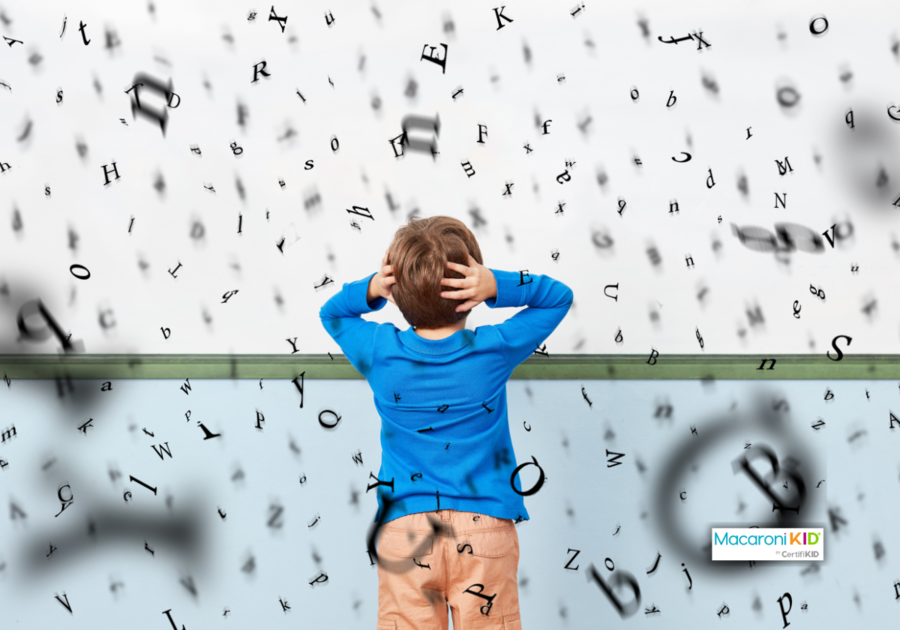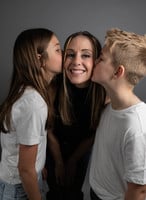In honor of Dyslexia Awareness Month (every October), Macaroni Kid Temecula-Murrieta-French Valley would like to introduce you to Meredith Gleason, a local Temecula mom, and a multi-award winning, Licensed Educational Psychologist (LEP #3847) with 15 years of experience working with students ranging from preschool to college age. She has worked throughout Southern California from Los Angeles to San Diego. She began her educational career as a teacher and has worked for the last decade as a school psychologist. She is passionate about empowering students and their families by identifying individual learning profiles to increase emotional well-being and academic experience. She received her M.S. in School Psychology and Pupil Personnel Services Credential from California State University, Northridge. Meredith Gleason has personal experience with Dyslexia and has shared the following information to help Macaroni Kid Temecula-Murrieta-French Valley readers better understand how a professional like her can help a child with this disorder.
What is Dyslexia?
- A language-based disorder that primarily impacts reading
- Accounts for 70-80% of learning disabilities
- Dyslexia is common; about 20% of children experience reading problems associated with dyslexia
- Dyslexia is hereditary
- Range of symptoms and different degrees of impacts
- Dyslexia Subtypes:
- Dysphontetic Dyslexia: difficulty sounding out words in a phonological manner; most common and often referred to as a reading disability
- Surface Dyslexia: difficulty with rapidly recalling information from long-term memory to identify words in print timely; visual perception or visual memory deficits that impact word recognition (symptoms include difficulty with sight words, irregularly spelled words and frequent inserts or omissions when reading out loud)
- Mixed Dyslexia: a child presenting with more than one of the above subtypes; considered most severe
Like previously mentioned, dyslexia is a spectrum disorder, meaning it does not always present the same way and to the same degree for each child. It is important to identify the individual key areas of impact for a child with dyslexia through a psychoeducational assessment. A professional like Meredith Gleason, looks at a child's academic achievement, cognitive and psychological processing (different areas of the brain that can impact learning) and social-emotional, behavioral abilities. With this assessment, Meredith can essentially put all the puzzle pieces together to determine why a child is struggling to learn and include a diagnosis if the child meets the criteria. Her assessment can also include specific recommendations to support the child's areas of need as well as identity ways to play to a child's strengths.
 blackboard1965 via Canva blackboard1965 via Canva |
"Early Intervention is Key", says Meredith Gleason
Once a child is diagnosed, the next step is to develop an effective treatment plan, often referred to as "intervention" in an educational setting. Schools have a wide range of interventions available for students with reading difficulties such as reading intervention programs within the classroom or a more intense reading intervention that requires a child to go to a specific classroom with a trained reading interventionist or educational specialist. These children may be eligible for special education services which may include an individualized education program (IEP) or a 504 plan.
Meredith is often asked, "When should intervention start?" Research shows that intervention works best for children with dyslexia or reading difficulties when it takes place between kindergarten and second grade. This is when a child is learning pre-reading and basic reading skills, including the ability to identify sounds which is taught as early as preschool. Understanding that these sounds connect to letters and words is an essential reading skill learned during the first couple of years of school.
Parents also often share with Meredith their frustration that reading concerns weren't really noticed or identified until their child was in third or fourth grade. "There is an unfortunate reason for this pattern of "late" identification of reading disability, such as dyslexia", notes Mrs. Gleason. "From kindergarten through second grade, children are "learning to read" and from third grade on they are "reading to learn." When a child has not mastered the "learning to read" phase in the early grades, it is often found that when they get to the upper elementary grades, they will struggle to learn at the same rate as their peers. Unfortunately, this is most often when children are identified in school as having a reading disability or dyslexia. While intervention can still be effective for upper grade students with dyslexia, they are often playing constant catch-up with their peers, and some never do close that gap between their reading ability and their peers’ reading ability. Long-term effects of unidentified dyslexia can include impact on high school graduation rates and the chance of attending a 4-year college."
 LightFieldStudios via Canva LightFieldStudios via Canva |
Evaluation Models in Schools
Parents of children struggling in reading often ask Meredith, “How do I get my child the help they need in school?” According to Mrs. Gleason, "The answer to this can often be discouraging and feel like schools are waiting until a child fails before providing intervention. Sometimes school districts tell parents that a child has to be at least 2 grade levels below before they will evaluate a child for special education. However, there is no law stating as such and parents have the right to request a special education evaluation for their child at any time, at no cost to them. I often recommend parents put this request for a psychoeducational assessment for special education in writing so a documentation trail can begin and to become familiar with their parent rights, such as knowing your child’s school district has to respond to your request for a special education evaluation within a 15-day time period.
When a child receives an evaluation for special education, which includes looking for specific learning disability (SLD) like dyslexia, school districts can use different evaluation models to determine if a child meets SLD criteria. Different SLD evaluation models include the Discrepancy Model, Response to Intervention (RTI) or Patterns of Strengths and Weaknesses (PSW). Each model has different ways of identifying SLD, which can be confusing for parents because sometimes that means a child would or would not meet criteria for special education depending on which SLD model their child’s school district uses.
This is why some parents choose to seek private services to address their child’s reading needs. While a parent can request a school-based evaluation for special education at no cost to them, some parents prefer to pay for a psychoeducational evaluation that includes a diagnosis and specific recommendations for treatment, such as educational therapy. My practice, Achieve Concierge, offers free consultations to help parents decide if their child needs an assessment for dyslexia and/or other educationally related disabilities. Achieve Concierge also offers free consultations to help parents determine what type of support their child might need to remediate reading difficulties such dyslexia. While there is no cure for dyslexia, children can make significant progress with intervention. Many adults with dyslexia, such as myself, can go on to lead academically and professionally successful lives."
WHAT CAN PATIENTS EXPECT FROM YOU AS A PROVIDER?
Patients can expect me to be a psychologist who is compassionate and an empathetic listener, in addition to having a thorough understanding of common diagnoses that impact student learning such as ADHD, Anxiety, Autism, and Dyslexia. I am passionate about conducting in-depth and comprehensive psychoeducational assessments to identify a student’s strengths and weaknesses. My goal is to provide families with answers to their questions about how and why their child may be struggling to learn. Additionally, I have a strong working knowledge of how to translate psychoeducational assessment results to an educational setting that supports learning differences. I am also proficient in a variety of counseling tools and curriculums which help children and adolescents identify triggers, feelings and coping strategies. My team-based approach of working with the patient, family, and educators increases the generalization of self-regulation strategies across the home and school environment. I look forward to being on your child’s team!
WHAT DO YOU SPECIALIZE IN?
Childhood:
ADHD and Autism
Anxiety
Learning Disorders (Dyslexia, Dyscalculia and Dysgraphia)
WHAT MAKES YOU DIFFERENT AS A PROVIDER?
I am a uniquely qualified provider because I have 15 years of educational experience as a teacher and as a psychologist in the schools, in addition to being a parent myself. My experience in education has been an asset in identifying students’ individual learning needs and appropriate interventions. My extensive counseling experience and specific training in trauma-informed care have crafted my ability to connect with children, increase their self-esteem, and help them develop resilience. In addition, I am passionate about supporting students with executive functioning deficits through motivational counseling and support.
HOW LONG HAVE YOU LIVED IN SOUTHERN CALIFORNIA?
I was born and raised in Southern California, specifically in San Diego. I have lived in California all my life in cities such as San Diego, Los Angeles and San Luis Obispo.
HOW WOULD YOU DESCRIBE YOUR FAMILY?
I am incredibly fortunate to have a wonderful husband, daughter and son. We are a family who values empathy, resiliency, teamwork, and, of course, lots of love and laughter. We try to give our children the support they need and deserve while trying not to take ourselves too seriously. We emphasize being present and mindful when together as a family. We enjoy spending time as a family watching sunsets at Torrey Pines, traveling along the coast of California, and having impromptu dance parties in our kitchen.
WHAT ARE YOUR INTERESTS AND HOBBIES?
I enjoy time with my family, going to the beach, cooking, and traveling. I also enjoy being active via yoga, pilates, cycling and hiking.
CAN YOU RECOMMEND FIVE RESOURCES FOR OUR READERS?
- For information on education and learning differences: www.understood.org
- Meditation: Calm or Headspace Apps
- For Movement Breaks: Go Noodle or Cosmic Yoga
- Book for Parents: The Everything Parent’s Guide to Children With Executive Functioning Disorder by Rebecca Branstetter
- Book for Parents: Smart, but Scattered by Peg Dawson and Richard Guare
CONTACT INFORMATION
Phone: (858) 215-2068
Email: Meredith@achieveconcierge.com
Instagram: @mrs_g_the_lep



